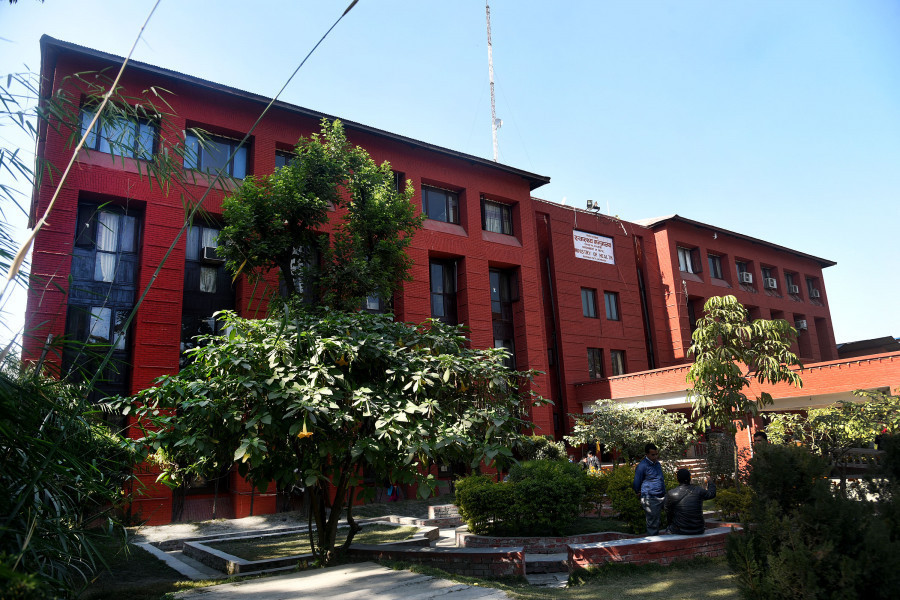Health
Health Ministry recommends school closure for at least three weeks
Of the total infections at present, 14 percent are in children compared to 4 percent in the past, officials say.
Arjun Poudel
The Ministry of Health has recommended the closure of schools for three weeks in densely populated areas like Kathmandu, Pokhara and Parsa, among others, in light of rising Covid-19 cases among schoolchildren and their family members.
“We have recommended shutting down schools for at least three weeks immediately in high risk areas and big cities,” Dr Samir Kumar Adhikari, joint spokesperson for the Health Ministry, told the Post.
According to Adhikari, of the total cases reported in recent days, 14 percent are children. Last year, only four percent of the total infections were children.
About two weeks ago, the Nepal Army-run Sainik Awasiya Mahavidyalaya in Bhaktapur was shut down after some of its students and teachers tested positive for the coronavirus. At least 23 students and some teachers of the school had tested positive.
Covid-19 cases were detected in 40 students at an engineering college in Pokhara a month ago, according to the Epidemiology and Disease Control Division.
School operators, however, are yet to agree on closing the schools.
On Friday, the Covid-19 Crisis Management Centre held consultations with the representatives of private and public schools and guardians where they pushed for classes with physical presence by adopting strict health guidelines.
According to a school representative who attended the meeting, stopping classes would hamper students’ studies.
“We said a blanket closure of the academic institutions will affect children’s learning,” Ritu Raj Sapkota, chairperson of National Private and Boarding Schools’ Association, Nepal, told the Post. “We are for running schools by strictly following health guidelines. The officials from the centre had agreed to our proposal.”
School operators say as the last year’s experience has shown, most of the schools and children are not equipped for virtual classes and the government shouldn’t opt for a blanket closure of schools.
As the Covid-19 pandemic severely affected the teaching-learning process, the government has extended the academic year by two months.
The academic session that normally concludes in April has been pushed until June.
Sapkota said the blanket closure could further affect the current academic session.
Over 7 million students study in around 30,000 private and public schools across the country.
“We are for allowing the respective local governments to decide on the matter as the effect of the pandemic is not uniform across the country,” Deepak Sharma, spokesperson for the Education Ministry, told the Post. “However, the schools that continue physical classes must abide by the health protocols.”
The government in September last year had endorsed a directive allowing the respective local governments to make decisions on the closure of the schools.
Although children are at a relatively low risk of developing a severe form of the infection, health experts warn that they could pass on the virus to other vulnerable groups at their homes and communities.
Moreover, the Health Ministry has confirmed that the fast-spreading variant of the coronavirus, the one first detected in the United Kingdom, is responsible for the recent spike in new cases in Nepal, whose infection rate, severity and death rate are very high compared to the variant first detected in the country.
“Even children and youths are becoming seriously ill,” Dr Sagar Rajbhandari, director at Sukraraj Tropical and Infectious Disease Hospital, told the Post.
Scientists in the United Kingdom have said that the UK variant, known as B.1.1.7, is 40 to 70 percent more transmissible than the one that caused the first wave of coronavirus infection.
They have also said that the virus is 64 percent deadlier than the previous strains.
“We have also recommended that public vehicles carry passengers only 50 percent of their capacity and enforce safety measures strictly,” said Adhikari.
Earlier on Wednesday, the Health Ministry had issued 10-point recommendations urging agencies concerned to take utmost caution, as the infection rate has been found high among schoolchildren in big cities like Kathmandu and Pokhara.
In a statement, the ministry called for strictly enforcing safety measures in public transportation of big cities and in other public places—shopping malls, bars, cinema halls, party palaces, health clubs, swimming pools and temples, among others.
The ministry has urged the local level and local administrations to encourage people to stay in home quarantine following their return from abroad and monitor if they are following safety measures properly.
“Increase contact tracing, antigen tests, and polymerase chain reaction tests as per the need,'' the statement reads.
Nepal has so far reported 279,725 cases of coronavirus infections, with 3,039 deaths.
The Health Ministry said on Saturday that 337 people were infected and one died in the last 24 hours. Apart from this, 26 people tested positive during antigen tests performed at health desks set up at Nepal-India border points. The number of active cases stands at 2,800 throughout the country.
Public health experts have warned that health facilities could be overwhelmed within a few days, as new variants of the virus are more infectious.
“We may not get much time for preparation,” Dr Sher Bahadur Pun, chief of the Clinical Research Unit at Sukraraj Tropical and Infectious Disease Hospital, told the Post. “We should start necessary preparation for the worst-case scenario.”
Binod Ghimire contributed reporting.




 17.12°C Kathmandu
17.12°C Kathmandu















